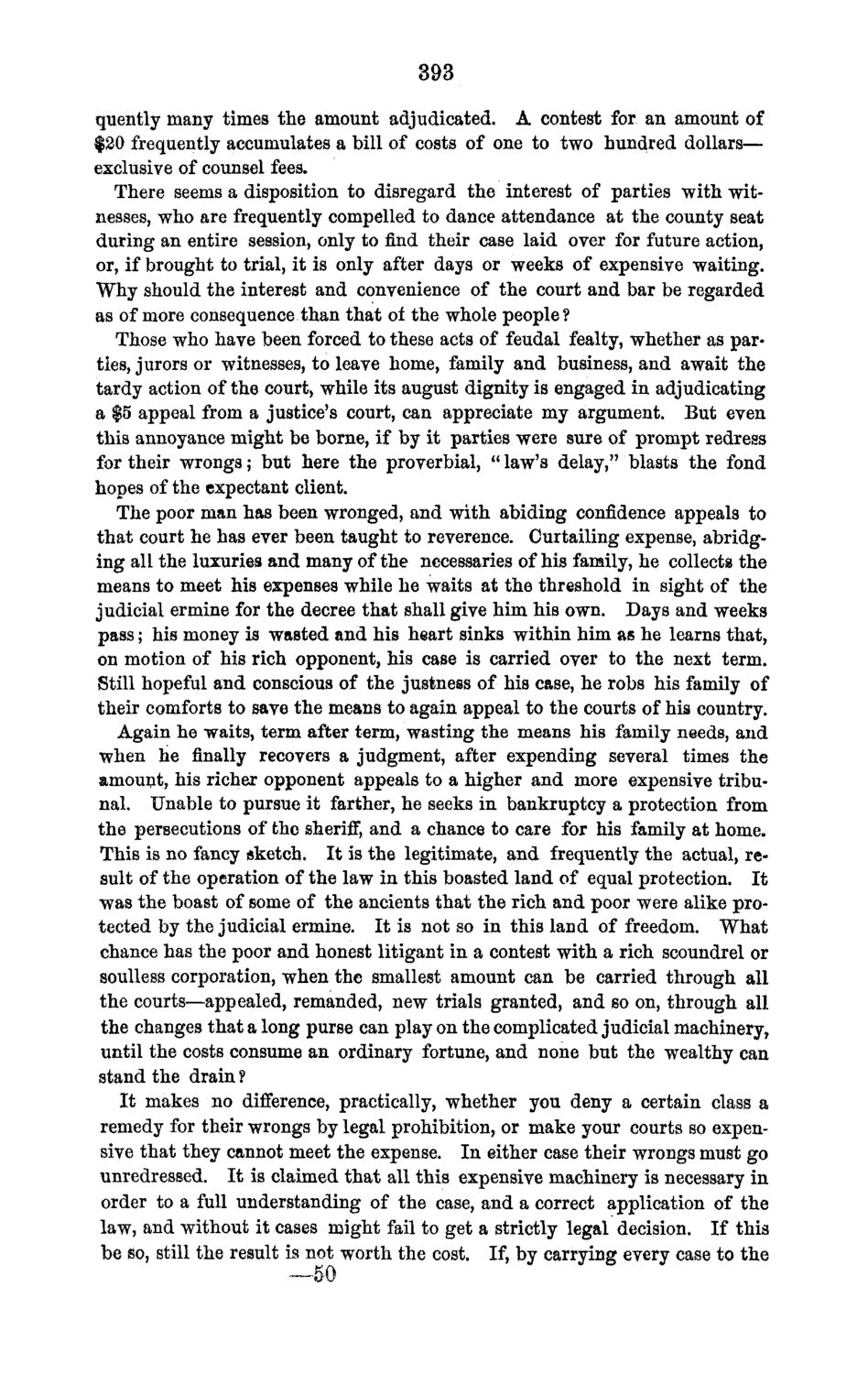| |
| |
Caption: Board of Trustees Minutes - 1870
This is a reduced-resolution page image for fast online browsing.

EXTRACTED TEXT FROM PAGE:
393 quently many times the amount adjudicated. A contest for an amount of $20 frequently accumulates a bill of costs of one to two hundred dollars— exclusive of counsel fees. There seems a disposition to disregard the interest of parties with witnesses, who are frequently compelled to dance attendance at the county seat during an entire session, only to find their case laid over for future action, or, if brought to trial, it is only after days or weeks of expensive waiting. Why should the interest and convenience of the court and bar be regarded as of more consequence than that of the whole people? Those who have been forced to these acts of feudal fealty, whether as parties, jurors or witnesses, to leave home, family and business, and await the tardy action of the court, while its august dignity is engaged in adjudicating a $5 appeal from a justice's court, can appreciate my argument. But even this annoyance might be borne, if by it parties were sure of prompt redress for their wrongs; but here the proverbial, "law's delay," blasts the fond hopes of the expectant client. The poor man has been wronged, and with abiding confidence appeals to that court he has ever been taught to reverence. Curtailing expense, abridging all the luxuries and many of the necessaries of his family, he collects the means to meet his expenses while he waits at the threshold in sight of the judicial ermine for the decree that shall give him his own. Days and weeks pass; his money is wasted and his heart sinks within him as he learns that, on motion of his rich opponent, his case is carried over to the next term. Still hopeful and conscious of the justness of his case, he robs his family of their comforts to save the means to again appeal to the courts of his country. Again he waits, term after term, wasting the means his family needs, and when he finally recovers a judgment, after expending several times the amount, his richer opponent appeals to a higher and more expensive tribunal. Unable to pursue it farther, he seeks in bankruptcy a protection from the persecutions of the sheriff, and a chance to care for his family at home. This is no fancy sketch. It is the legitimate, and frequently the actual, result of the operation of the law in this boasted land of equal protection. It was the boast of some of the ancients that the rich and poor were alike protected by the judicial ermine. It is not so in this land of freedom. What chance has the poor and honest litigant in a contest with a rich scoundrel or soulless corporation, when the smallest amount can be carried through all the courts—appealed, remanded, new trials granted, and so on, through all the changes that a long purse can play on the complicated judicial machinery, until the costs consume an ordinary fortune, and none but the wealthy can stand the drain ? It makes no difference, practically, whether you deny a certain class a remedy for their wrongs by legal prohibition, or make your courts so expensive that they cannot meet the expense. In either case their wrongs must go unredressed. It is claimed that all this expensive machinery is necessary in order to a full understanding of the case, and a correct application of the law, and without it cases might fail to get a strictly legal decision. If this be so, still the result is not worth the cost. If, by carrying every case to the —50
| |